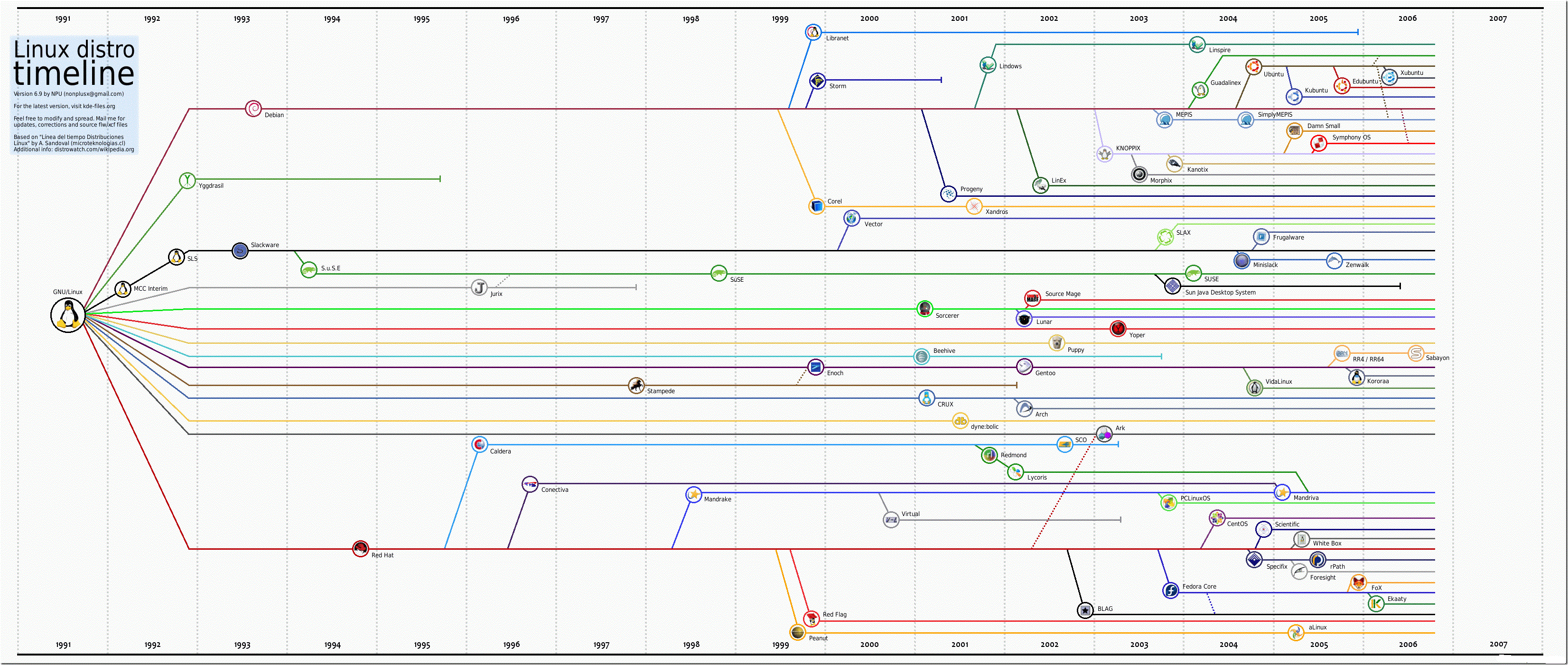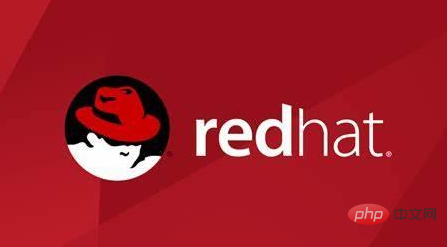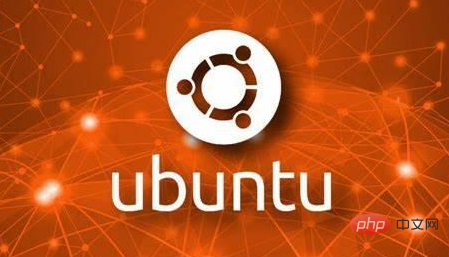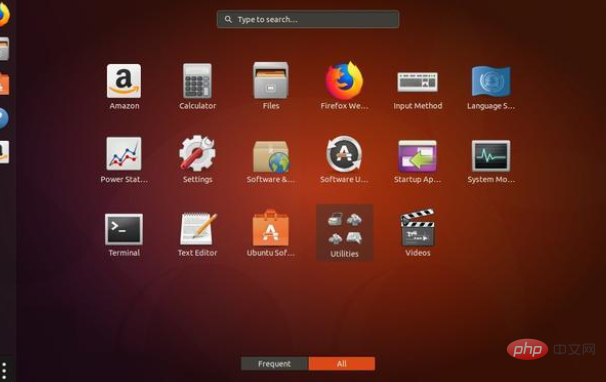 Operation and Maintenance
Operation and Maintenance
 Linux Operation and Maintenance
Linux Operation and Maintenance
 What is the difference between linux kernel and linux system
What is the difference between linux kernel and linux system
What is the difference between linux kernel and linux system
The difference between the linux kernel and the linux system: 1. The linux operating system contains the linux kernel, which is an extension of the linux kernel. The linux kernel only provides core programs for hardware abstraction layer, hard disk and file system control. ; 2. The Linux system will add user interface and various software support on the basis of the kernel, while the Linux kernel does not have user interface and software support.

#The operating environment of this tutorial: linux7.3 system, Dell G3 computer.
What to do if ifconfig cannot be found in Linux
The Linux operating system includes the Linux kernel. The linux operating system extends the linux kernel and installs some development packages and common tools. For example, ubuntu and centos may use the same version of the Linux kernel, but they provide different tools and commands for the Linux kernel, such as management tools. Ubuntu uses apt-get and centos uses yum. In other words, the Linux kernel plus some supporting system commands constitute a Linux operating system.
linux kernel:
Linux kernel refers to a system core maintained by Linus Torvalds that provides hardware abstraction layer, hard disk and file system control and multi-tasking functions program.
linux system:
Linux distribution is a collection of Linux kernel and various commonly used software products. Today, there are hundreds of Linux distributions in the world. According to Different standards can classify Linux distributions of different natures. For example, one classification method is based on whether it is maintained by a community or a commercial company. There are three main branches of Linux distributions: Debian, Slackware, and Redhat.
Difference
1. The Linux core only has the kernel part. After installation, there is no user interface/software. The kernel is the heart of the system and the most basic code in Linux.
2. Linux distribution is based on the kernel, adding user interface and support for various software. Such as CenterOS, Little Red Riding Hood, etc. On the basis of the kernel, different applications are developed to form a complete operating system.
Back to the topic, you will know the difference between learning the Linux kernel and learning the Linux operating system. Learning the Linux kernel inevitably involves learning its file system types, system calls, processes, memory, process scheduling, network models, etc. Knowledge, while learning the Linux operating system, focuses on learning its specific version, such as ubuntu, how to configure the source of apt-get, how to manage system services, the above database, how to install and use the shared file system, and how to use the above development environment Configuration, such as cuda, golang, scala or others, how to configure the environment to brighten, and how to write basic shell scripts.
Extended knowledge:
Linux operating system and various distributions
We briefly introduced the Linux operating system earlier , kernel and distribution. For the Linux operating system, it itself is a whole, including the Linux kernel, system libraries and system programs. The Linux kernel is its most basic part. It implements the management of hardware resources and provides universal functions for using these hardware resources. interface.
Since the release of the LInux kernel in 1991, many companies have joined in and built their own operating system versions based on the kernel, such as Redhat, Debian and Suse, etc. Figure 2 shows the evolution of Linux distributions from 1991 to 2007 (for high-resolution pictures, please send a private message to linuxtl). It can be seen that by 2007 there were no less than 20 releases.

#There are many Linux distributions. The following is a brief introduction to the more popular distributions.
Redhat Distribution
Red Hat Linux is a Linux distribution released by Red Hat. Red Hat Linux can be regarded as a "middle-aged" Linux distribution package. Its 1.0 version was released on November 3, 1994. Red Hat Linux should be the most widely used operating system in the industry. Many other distributions are based on this distribution, such as CentOS and Oracle Linux.

CentOS Distribution
CentOS Distribution is an open source version of Red Hat LInux. It is compiled from source code released by Red Hat Linux in accordance with open source regulations. Since Red Hat Linux itself is a commercial operating system, many companies have many inconveniences in using it, so these companies have moved to CentOS.

Operating system distributions such as Red Hat and CentOS are mainly used in enterprise services, and more are used in server-side businesses, such as Web services and cloud computing.
Ubuntu Distribution
Ubuntu was originally a desktop distribution based on Dibian. Ubuntu can basically replace Windows for daily office work, because its distribution contains all the software commonly used for daily office work, such as email clients, open source Office suites, and other tools we can think of. And these tools are free.

The following is a desktop screenshot of the Ubuntu desktop version. It can be seen that it is very similar to Windows or MacOS, and the aesthetics are also very good.

#Ubuntu is developing rapidly. In addition to the desktop version, there are also other versions such as service version and cloud computing version, covering almost all application fields.
Recommended learning: Linux video tutorial
The above is the detailed content of What is the difference between linux kernel and linux system. For more information, please follow other related articles on the PHP Chinese website!

Hot AI Tools

Undresser.AI Undress
AI-powered app for creating realistic nude photos

AI Clothes Remover
Online AI tool for removing clothes from photos.

Undress AI Tool
Undress images for free

Clothoff.io
AI clothes remover

AI Hentai Generator
Generate AI Hentai for free.

Hot Article

Hot Tools

Notepad++7.3.1
Easy-to-use and free code editor

SublimeText3 Chinese version
Chinese version, very easy to use

Zend Studio 13.0.1
Powerful PHP integrated development environment

Dreamweaver CS6
Visual web development tools

SublimeText3 Mac version
God-level code editing software (SublimeText3)

Hot Topics
 1378
1378
 52
52
 How to start nginx in Linux
Apr 14, 2025 pm 12:51 PM
How to start nginx in Linux
Apr 14, 2025 pm 12:51 PM
Steps to start Nginx in Linux: Check whether Nginx is installed. Use systemctl start nginx to start the Nginx service. Use systemctl enable nginx to enable automatic startup of Nginx at system startup. Use systemctl status nginx to verify that the startup is successful. Visit http://localhost in a web browser to view the default welcome page.
 How to check whether nginx is started
Apr 14, 2025 pm 01:03 PM
How to check whether nginx is started
Apr 14, 2025 pm 01:03 PM
How to confirm whether Nginx is started: 1. Use the command line: systemctl status nginx (Linux/Unix), netstat -ano | findstr 80 (Windows); 2. Check whether port 80 is open; 3. Check the Nginx startup message in the system log; 4. Use third-party tools, such as Nagios, Zabbix, and Icinga.
 How to start nginx server
Apr 14, 2025 pm 12:27 PM
How to start nginx server
Apr 14, 2025 pm 12:27 PM
Starting an Nginx server requires different steps according to different operating systems: Linux/Unix system: Install the Nginx package (for example, using apt-get or yum). Use systemctl to start an Nginx service (for example, sudo systemctl start nginx). Windows system: Download and install Windows binary files. Start Nginx using the nginx.exe executable (for example, nginx.exe -c conf\nginx.conf). No matter which operating system you use, you can access the server IP
 How to solve nginx304 error
Apr 14, 2025 pm 12:45 PM
How to solve nginx304 error
Apr 14, 2025 pm 12:45 PM
Answer to the question: 304 Not Modified error indicates that the browser has cached the latest resource version of the client request. Solution: 1. Clear the browser cache; 2. Disable the browser cache; 3. Configure Nginx to allow client cache; 4. Check file permissions; 5. Check file hash; 6. Disable CDN or reverse proxy cache; 7. Restart Nginx.
 How to solve nginx403 error
Apr 14, 2025 pm 12:54 PM
How to solve nginx403 error
Apr 14, 2025 pm 12:54 PM
The server does not have permission to access the requested resource, resulting in a nginx 403 error. Solutions include: Check file permissions. Check the .htaccess configuration. Check nginx configuration. Configure SELinux permissions. Check the firewall rules. Troubleshoot other causes such as browser problems, server failures, or other possible errors.
 How to check whether nginx is started?
Apr 14, 2025 pm 12:48 PM
How to check whether nginx is started?
Apr 14, 2025 pm 12:48 PM
In Linux, use the following command to check whether Nginx is started: systemctl status nginx judges based on the command output: If "Active: active (running)" is displayed, Nginx is started. If "Active: inactive (dead)" is displayed, Nginx is stopped.
 How to clean nginx error log
Apr 14, 2025 pm 12:21 PM
How to clean nginx error log
Apr 14, 2025 pm 12:21 PM
The error log is located in /var/log/nginx (Linux) or /usr/local/var/log/nginx (macOS). Use the command line to clean up the steps: 1. Back up the original log; 2. Create an empty file as a new log; 3. Restart the Nginx service. Automatic cleaning can also be used with third-party tools such as logrotate or configured.
 Difference between centos and ubuntu
Apr 14, 2025 pm 09:09 PM
Difference between centos and ubuntu
Apr 14, 2025 pm 09:09 PM
The key differences between CentOS and Ubuntu are: origin (CentOS originates from Red Hat, for enterprises; Ubuntu originates from Debian, for individuals), package management (CentOS uses yum, focusing on stability; Ubuntu uses apt, for high update frequency), support cycle (CentOS provides 10 years of support, Ubuntu provides 5 years of LTS support), community support (CentOS focuses on stability, Ubuntu provides a wide range of tutorials and documents), uses (CentOS is biased towards servers, Ubuntu is suitable for servers and desktops), other differences include installation simplicity (CentOS is thin)



